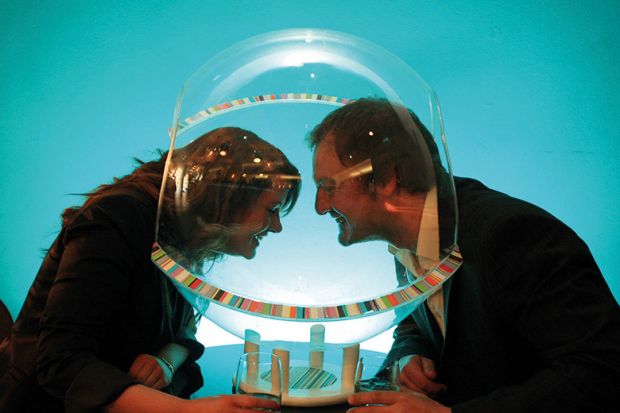How can linguists make the case for their subject in a new and seemingly hostile climate of political populism?
That was the theme of a workshop organised by the University Council for Modern Languages and held in London on 6 January.
Since the Brexit vote, said Silke Mentchen, senior language teaching officer at the University of Cambridge, she had felt like “a bargaining chip”, waiting for details of the status of the many European Union nationals working in British universities.
Partly in order to “combat [her] own feelings of powerlessness”, she had carried out a survey with Andrea Klaus of the University of Warwick “documenting the benefits to students of a year abroad”, which are often supported by EU funding under the Erasmus+ programme. Respondents described such years as “the highlight of my time at university” and even “one of the most defining features of my life to date”.
Michael Gratzke, professor of German and comparative literature at the University of Hull – and incoming chair of the UCML – urged delegates to embrace challenges as opportunities and to “help shape what happens two or three years from now [as a result of the Brexit negotiations]”.
Modern linguists needed to “find [their] voice again”, he said. Instead of asking “what can I do in cultural studies?” they needed to look for “the burning issues we share with our colleagues”, develop “humanities-led interdisciplinary research” and then approach others to join the team. Projects illustrating what was possible ranged from Transnational Holocaust Memory to his own Love Research Network.
Recent political developments and “post-truth attitudes”, argued Adrian Armstrong, head of the School of Languages, Linguistics and Film at Queen Mary University of London, seemed to represent “the worst nightmare for the enlightened internationalists that we [modern linguists] tend to think we are”. But they also demonstrated something “that’s been most influentially observed in political discourse by a linguist, namely George Lakoff – if you want to convert people, emotion is a lot more powerful than rationality”.
So what might it mean to try and make an emotional case for the value of modern languages as a discipline?
It should be seen as “a matter of social justice”, suggested Professor Armstrong, “to engage with migrants on different linguistic terms than our own” – a point that was likely to “resonate with senior managers as well as prospective students”.
He also wanted to celebrate the “deeply interdisciplinary character” of a subject involving “a range of different skills and approaches (philological, historical, etc) that both require and promote flexibility and empathy…So linguists – even in the unlikely event that they never speak another word of a foreign language after they graduate – are uniquely well equipped to engage with the complexities and overlapping identities of the modern world.”
Register to continue
Why register?
- Registration is free and only takes a moment
- Once registered, you can read 3 articles a month
- Sign up for our newsletter
Subscribe
Or subscribe for unlimited access to:
- Unlimited access to news, views, insights & reviews
- Digital editions
- Digital access to THE’s university and college rankings analysis
Already registered or a current subscriber? Login








